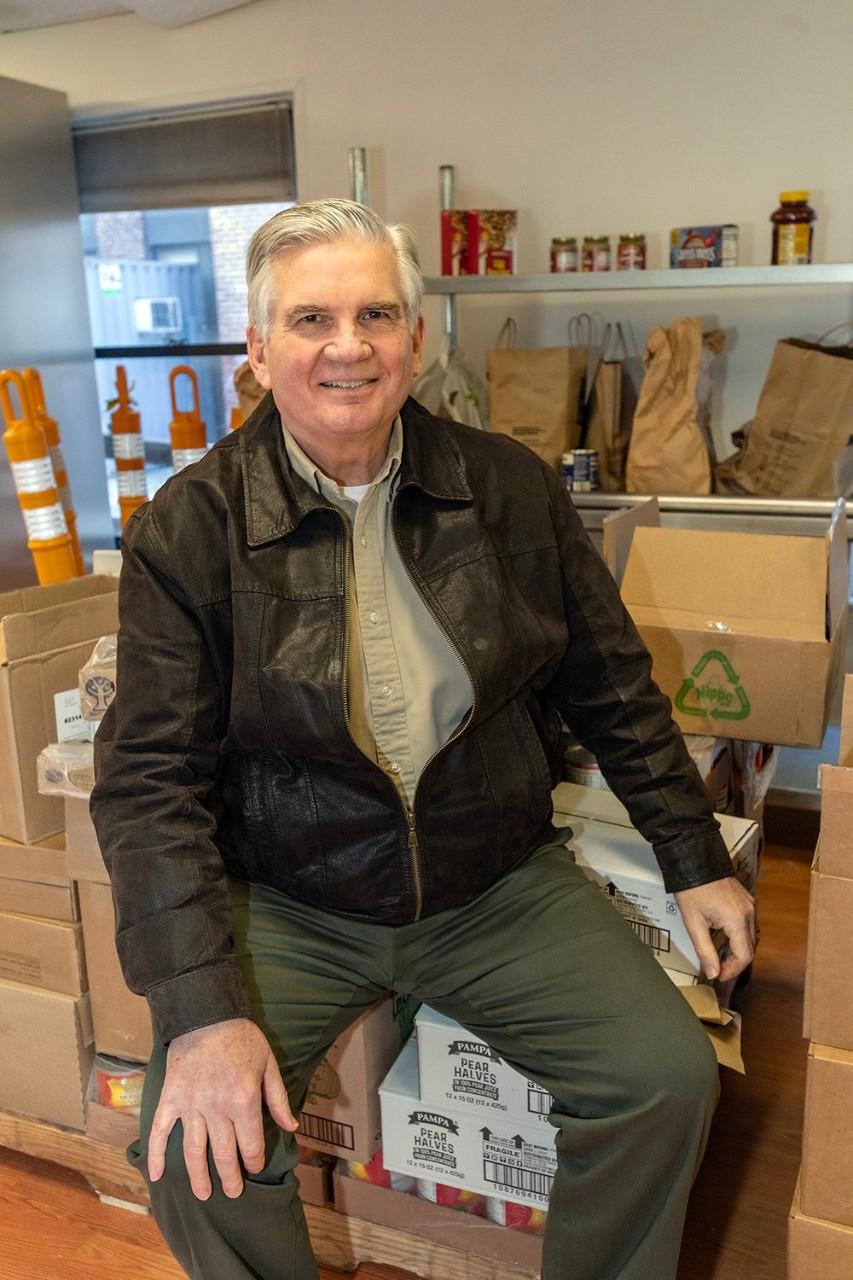Tom MacDonald's novels are inspired by his hometown of Boston, but "I try to bring everything right down to the street level," he says, "so in a sense, the story could happen anywhere." Photos by Lee Pellegrini.
Tom MacDonald’s experience as a student in the MBA program at the Carroll School of Management marked a turning point in his career, but not for the reasons you might think. Forty years old, with 15 years experience as a computer programmer, MacDonald enrolled in the program as a visiting student, and quickly determined that the world of finance and corporate decision making was not for him.
“It became clear to me that I had no instinct for business,” he said with a laugh. “I guess my brain just doesn’t work that way.”
He decided to muddle through, especially since his employer was footing the tuition bill, but then found himself unemployed when the business folded. Around the same time, he enrolled in a year-long course offered with BC’s sociology department that explored topics like business ethics and corporate responsibility, areas that piqued MacDonald’s interest. He started writing short stories inspired by each lesson, and submitted a 50-page mini-thesis at the end of the term. His professor, Eve Spangler, who has taught sociology at Boston College since 1979, sent him a heartfelt note in response.
“She wrote me a page and a half saying how moved she was by my writing and she said, ‘You should write,’” MacDonald recalled. “I don’t know if she was trying to guide me towards writing or away from business but either way she was right on the mark. I loved doing it.”
MacDonald completed his MBA in 2002 and, shortly after, accepted a job as director of social ministry at St. Mary - St. Catherine of Siena Parish in Charlestown, where he took over the daily operation of its food pantry. With Spangler’s encouragement lingering in the back of his mind, he continued writing in his spare time, and was accepted to the University of Southern Maine’s Stonecoast MFA in Creative Writing program just before his 50th birthday.

Tom MacDonald at Harvest on Vine food pantry in Charlestown, where he's worked for almost two decades.
A longtime fan of crime novels, MacDonald submitted a short crime story for one of his first assignments, which earned him more positive feedback. (“My professor told me, ‘This is where your voice is,’” he recalled.) By the time the program ended, MacDonald had received his first rejection letter from Oceanview Publishing, but his creative juices were flowing. His next manuscript, starring a private detective by the name of Dermot Sparhawk, was accepted for publication in 2011.
As soon as The Charlestown Connection hit shelves, accolades started rolling in, with reviewers praising MacDonald’s character development and unexpected plot twists. The book was named a finalist for the American Librarians Association Book of the Year Award in 2011, took home Best New Novel at the 2012 Indie Book Awards, and was nominated for an International Thriller Award. Over the next decade, MacDonald published four more books starring Sparhawk as the main character, satisfying a growing fan base. His latest, The Murder of Vincent Dunn, was released in November.
While firmly works of fiction, MacDonald’s books are packed with details borrowed from his own life and local history books. Sparkawk grows up in the Charlestown projects, where many of MacDonald’s clients live, and attends Boston College before the murder of his godfather propels him into a life of crime-solving. His ancestry—half Irish and half Native American—was inspired by MacDonald’s readings on the local Mi’kmaq tribe, whose members helped build the Tobin Bridge. And while not obvious to the casual reader, MacDonald frequently borrows phrases or lines of dialogue from his clients at the food pantry, where he’s worked for almost two decades.
“If I hear an idea or a one-liner I’ll jot it down on a piece of scrap paper so I can use it later,” he explained. “I’m always trying to get away from cliches and using the language of the neighborhood gives the characters a more realistic believability.”
MacDonald does most of his writing on the weekends (up until recently, most of his spare time was spent teaching creative writing to students at BC’s Woods College of Advancing Studies). It often takes him a full year to complete a project, which includes driving the streets of Boston with a map in hand, double-checking the local haunts he’s referenced in the text. A Dorchester native, MacDonald is familiar with the neighborhoods and local traditions he writes about, but a mistake sometimes slips through the cracks, and when it does, he hears about it.
“You’re never going to get it perfect,” he said. “A former Suffolk County prosecutor living down in Florida once read my book and called me up to say, ‘O’Callaghan Way is not in the Old Harbor projects, I grew up in them, it’s technically part of the one next door.’ Then he told me, ‘Don’t worry, it didn’t ruin the story.’”
Alix Hackett | University Communications | March 2023




